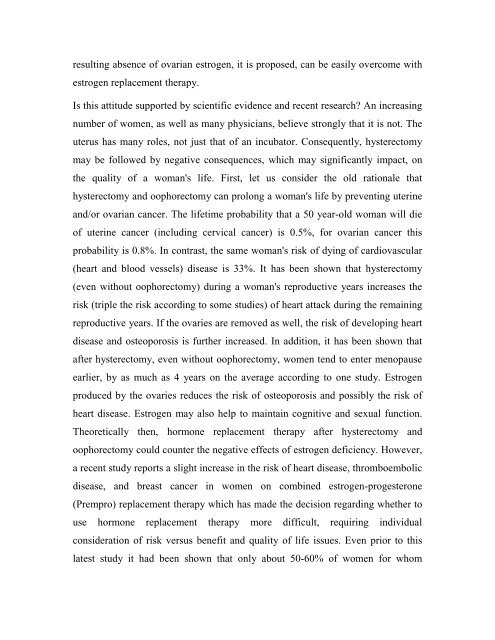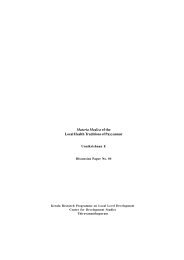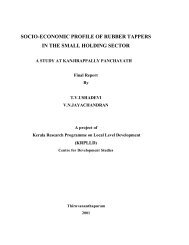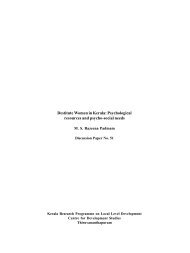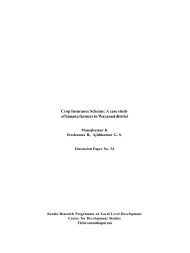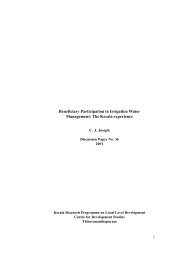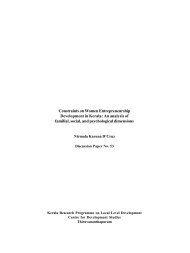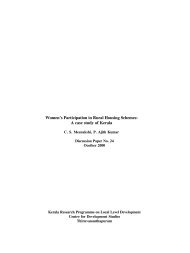Psycho-social problems of women who had undergone hysterectomy
Psycho-social problems of women who had undergone hysterectomy
Psycho-social problems of women who had undergone hysterectomy
You also want an ePaper? Increase the reach of your titles
YUMPU automatically turns print PDFs into web optimized ePapers that Google loves.
esulting absence <strong>of</strong> ovarian estrogen, it is proposed, can be easily overcome withestrogen replacement therapy.Is this attitude supported by scientific evidence and recent research? An increasingnumber <strong>of</strong> <strong>women</strong>, as well as many physicians, believe strongly that it is not. Theuterus has many roles, not just that <strong>of</strong> an incubator. Consequently, <strong>hysterectomy</strong>may be followed by negative consequences, which may significantly impact, onthe quality <strong>of</strong> a woman's life. First, let us consider the old rationale that<strong>hysterectomy</strong> and oophorectomy can prolong a woman's life by preventing uterineand/or ovarian cancer. The lifetime probability that a 50 year-old woman will die<strong>of</strong> uterine cancer (including cervical cancer) is 0.5%, for ovarian cancer thisprobability is 0.8%. In contrast, the same woman's risk <strong>of</strong> dying <strong>of</strong> cardiovascular(heart and blood vessels) disease is 33%. It has been shown that <strong>hysterectomy</strong>(even without oophorectomy) during a woman's reproductive years increases therisk (triple the risk according to some studies) <strong>of</strong> heart attack during the remainingreproductive years. If the ovaries are removed as well, the risk <strong>of</strong> developing heartdisease and osteoporosis is further increased. In addition, it has been shown thatafter <strong>hysterectomy</strong>, even without oophorectomy, <strong>women</strong> tend to enter menopauseearlier, by as much as 4 years on the average according to one study. Estrogenproduced by the ovaries reduces the risk <strong>of</strong> osteoporosis and possibly the risk <strong>of</strong>heart disease. Estrogen may also help to maintain cognitive and sexual function.Theoretically then, hormone replacement therapy after <strong>hysterectomy</strong> andoophorectomy could counter the negative effects <strong>of</strong> estrogen deficiency. However,a recent study reports a slight increase in the risk <strong>of</strong> heart disease, thromboembolicdisease, and breast cancer in <strong>women</strong> on combined estrogen-progesterone(Prempro) replacement therapy which has made the decision regarding whether touse hormone replacement therapy more difficult, requiring individualconsideration <strong>of</strong> risk versus benefit and quality <strong>of</strong> life issues. Even prior to thislatest study it <strong>had</strong> been shown that only about 50-60% <strong>of</strong> <strong>women</strong> for <strong>who</strong>m


